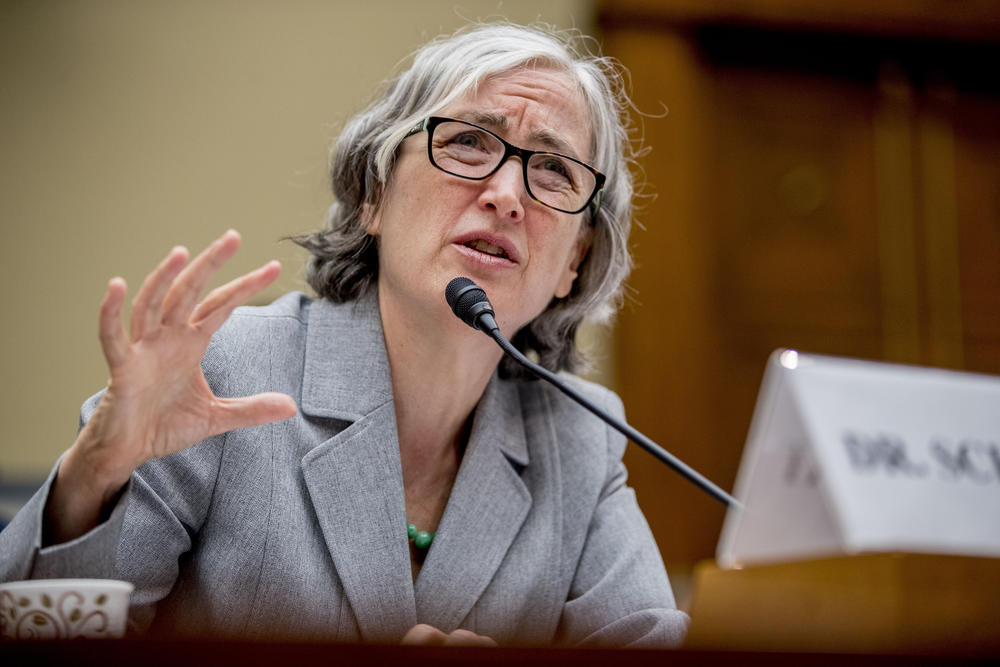Section Branding
Header Content
Lung Illness Reports Are ‘Tip Of The Iceberg,’ CDC Says
Primary Content
So far, 18 people have died, including one Georgian, and more than 1,000 people have been suddenly sickened with severe lung illness related to using electronic cigarettes, health officials say.
The Centers for Disease Control and Prevention Principal Deputy Secretary Dr. Anne Schuchat said during the Oct. 3 update that the latest numbers indicate the problem is only growing worse. Christine O'Meara is a community outreach coordinator at the Georgia Cancer Center. She says data from the state health department shows one-third of high school students believe vaping is less harmful than smoking cigarettes.
Most patients report a history of using THC-containing products and most of them are male and young people.
In fact, out of the 1,080 cases, approximately 70% of patients are male, Schuchat said. Approximately 80% of patients are under 35 years old. More than one-third of them, or 37% are under 21 years old.
"Unfortunately, this may be the tip of the iceberg when it comes to the escalating health threat this outbreak poses to the American public, particularly youth and young adults," CDC Director Dr. Robert Redfield said in an Oct. 3 media statement.
The CDC and local health departments are concerned with how quickly vaping use has risen among high school students and teenagers.
"We know that over 27% of high school students are using these products and over 10% of middle school students are using these products so this is a major public health issue," Redfield said during a health conference last month.
MORE: State Health Department Confirms First Vaping-Related Death In Georgia
Community Outreach Coordinator with the Georgia Cancer Center at Augusta University Christine O'Meara said younger people are more severely affected by nicotine.
"What we know about the effects of cigarette use on the developing brain is that it impairs cognition, the ability to think," O'Meara said.
Nicotine also reduces impulse control and can intensify mood disorders, she said.
"Another concern we have is that exposure to nicotine in childhood and adolescence primes the brain for use of other addictive substances," she said.
Redfield also mentioned the risk to teenagers when he spoke Sept. 26 at the Atlanta Aquarium during the Health Connect South conference. He said the numbers of teens using vape products such as Juul nearly doubled year over year.
"Many people thought this was going to be a health advantage for smokers and other people were worried it might be an onramp, and, unfortunately, we went from 3 million young people using these products last year to over 6 million young people using these products," Redford said.
RELATED: Tobacco Company Launches 'Heat-Not-Burn' Product IQOS In Atlanta
The Georgia Department of Public Health said in its 2018 report the number of high school students who tried electronic cigarettes once or twice increased 66% since 2013. And while manufacturers say these products are designed for adult smokers, DPH reported one in four high school students tried e-cigarettes and a third of high school students (31.7%; 142,000) reported that they believed e-cigarettes were less harmful than traditional cigarettes.
Poison control centers are also involved in reporting information about emergency room visits that may be related to the CDC and DPH vaping illness investigations. O'Meara said the rise in the number of calls is indicative of an epidemic. In 2014, the 55 poison centers nationwide reported 411 calls related to electronic cigarettes.
From January through September of 2019, there were 3,583 cases of exposure, O'Meara said.
"The exposures include drinking the E. liquid ... ingesting, inhaling it, breathing the aerosol or, as some people call it, vapor and, then absorption through the skin or the eyes," O'Meara said. "And we know that nicotine is extremely toxic."
Public and private schools in Georgia are taking the rise in vaping seriously and many have added anti-vaping campaigns. Cherokee County School District announced its tougher policy in May.
"Under our new School Board Attorney-developed and School Board-approved anti-vaping policy, any students found with vaping devices or oil will be treated as if they are in possession of felony-level marijuana CBD and THC oil," CCSD said in a letter to parents. "Punishments will include immediate external suspension from school, long-term reassignment to an alternative school and possible expulsion."


